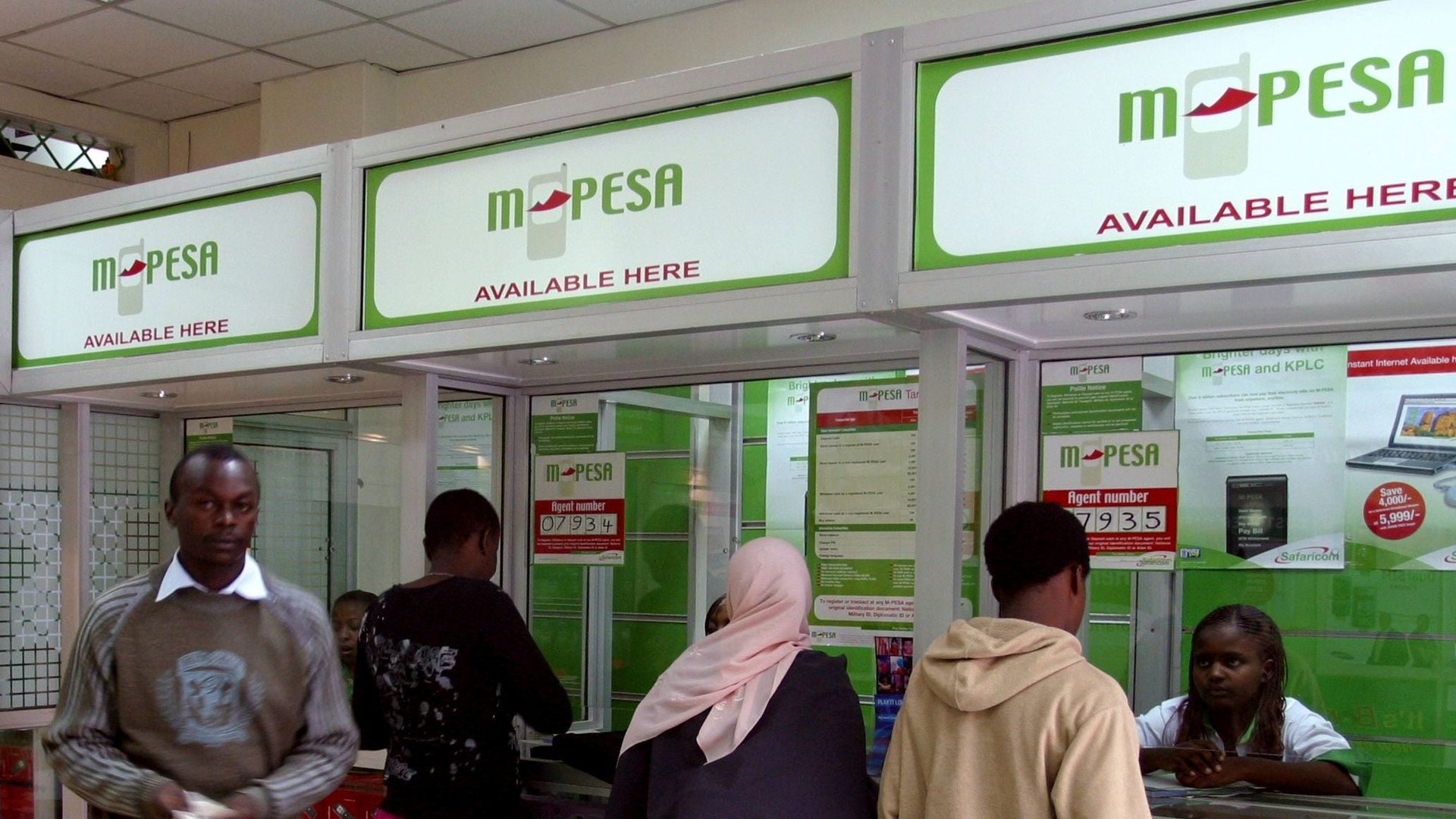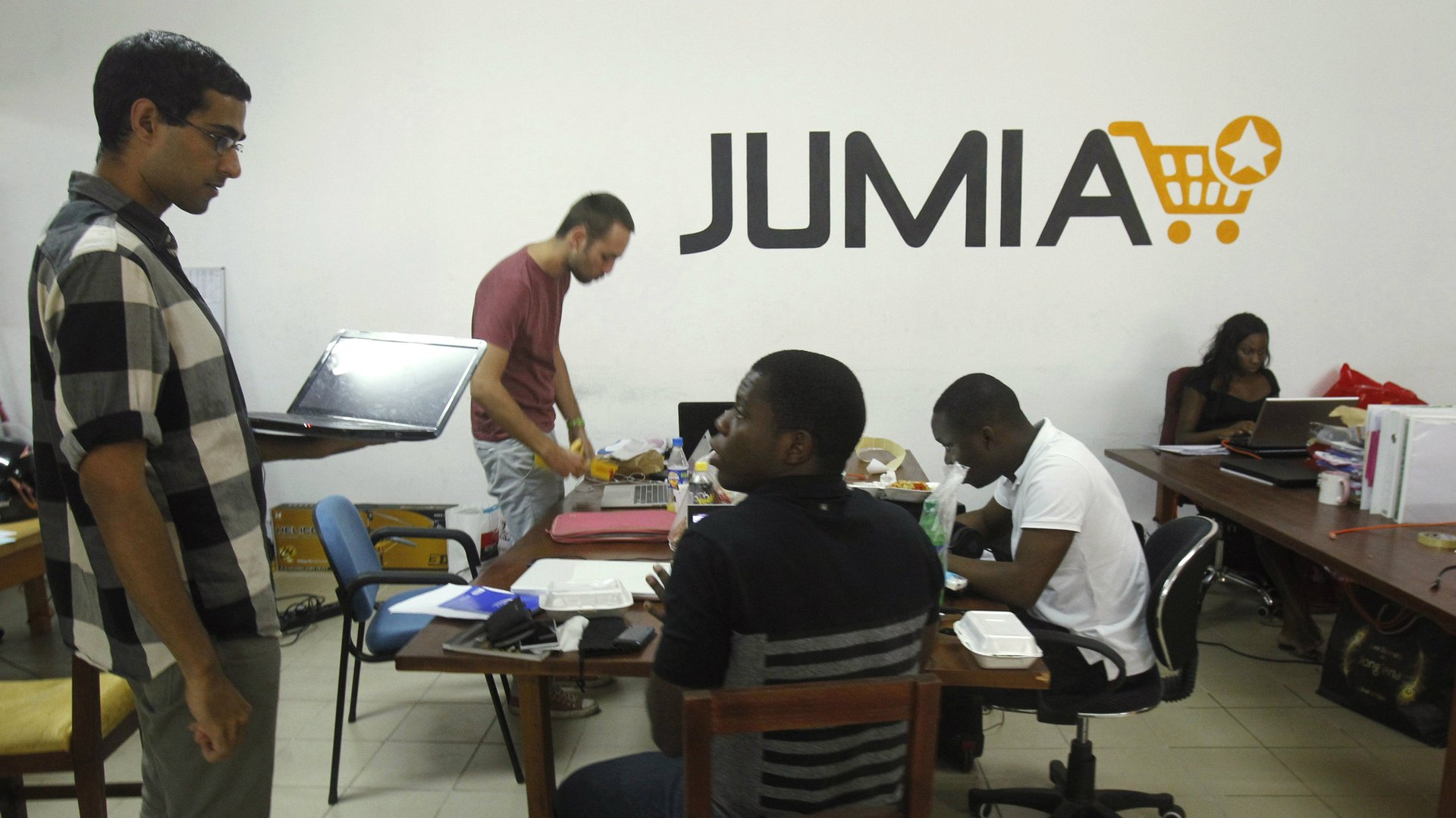How Africa’s promising startup landscape survives in a post-Covid-19 economy
If you take a look at reports tracking funding in African tech ecosystems this year, you wouldn’t be able to tell that a damaging pandemic has laid siege to economies globally.


If you take a look at reports tracking funding in African tech ecosystems this year, you wouldn’t be able to tell that a damaging pandemic has laid siege to economies globally.
In the first quarter of 2020, African startups raised 30% more capital year-on-year, data from research firm WeeTracker show. The top-line deals included big-ticket funding rounds like the $55 million raised by South African fintech company Jumo and the $40 million Series D round of Egyptian health-tech platform Vezeeta.
But, as the year progresses, a slowdown in funding is very likely in the cards, as the economic impact of the Covid-19 outbreak begins to manifest. Indeed, after half a decade of record-breaking fundraising, Africa’s tech ecosystems appear headed for a slump. Cape Town-based startup accelerator AfricArena estimates total funding in African startups this year could drop by as much as 40%. The report’s worst case scenario suggests the effects of the economic slowdown could last through 2021, with a full recovery only expected by 2022.
“Right now we’re still seeing a lot of fundraising but there’s a strong lagging effect,” says Tidjane Dème, general partner at Partech Africa, a pan-African venture fund. “We’ll know what’s really going on in a few months.” It’s a view that aligns with AfricArena’s report, which predicts the earliest signs of the slowdown will start to show up over the next two quarters.
While the funding streak in African tech startups over the years was a marker of investor interest and a validation of the promise of the companies being built, the expected slowdown is anything but an indictment. Instead, it is a recourse to typical trends during recessions as investors and venture funds aim to become more capital efficient.
“A lot of investors are very cautious now and they’re cautious for good reason,” says Dotun Olowoporoku, associate director at Novastar Ventures. “We don’t know yet what the post-Covid world will look like—both [in terms of] the quality of the impact and how permanent it will be.”
Some of the dip in funding levels will also be down to operational delays as general investment processes, including pitch meetings and due diligence procedures, are hampered by widespread restrictions on movement and international travel. It’s a reality that Dakar-based Dème acknowledges is already hobbling operations. “For the months we’re stuck at home, it will obviously harder to assess companies and we’re struggling with that.” he says.
While funding is expected to slow down, the flow of investment won’t exactly dry up. There are still millions of dollars in capital held by Africa-focused venture funds yet to be deployed. Nairobi-based Novastar Ventures closed an $108 million fund to back startups in East and West Africa earlier this month and Dème also admits Partech Africa is still in the early stages of investing its $143 million fund.
The catch is that while those capital pools exist, the criteria of assessing and backing companies will now be even higher, as investors become more conservative by default. “It’s going to take longer for startup funding deals to get done,” says Mobolaji Adeoye, founding partner at Consonance Investment Managers. “I already felt like there was a bit of a bubble or frothiness. There’s going to be some shedding of fat in the months ahead—there’s going to be a higher bar to scale and raise funds.”

An evolving outlook
As funding levels drop and the pandemic changes the macroeconomic outlook, the focus of startup investment on the continent will likely evolve. While “overall investment will go down, it’s going to go up in certain categories,” says Jonathan Greechan, co-founder of The Founder Institute, a global pre-seed startup accelerator that operates in eight African cities.
There’s already early evidence of an uptick for some sectors, with e-commerce companies across the continent reporting boosts as more users adopt online shopping out of necessity and safety. Similarly, with schools closed thanks to lockdowns, edtech companies offering online learning solutions have come sharply into focus. uLesson, an edtech company operating across Nigeria, Ghana, Sierra Leone, The Gambia, and Liberia has notched nearly 250,000 app downloads in the first three months since its launch.
Amid a global health and economic crisis, investor focus could also shift to businesses tackling basic problems, like healthcare and food supply. Recent investments like the $15 million Series A round in genomics firm 54gene, the $17 million raise of Ghanaian pharmacy inventory management startup mPharma and $4.2 million Series A round in Nigeria-based agro-processing firm Tomato Jos, may yet be precursors of changing trends as investors make less risky bets.
The result, at the end of the year, could be a more even distribution of funding across sectors, and might even slow the widening dominance of fintech funding seen over the past three years. But given the lockdown has actually highlighted how important fintech is not just for startups but traditional companies including banks, retailers, and others, the leading sub-sector is likely to retain its lead. Fintech will also still be important for its impact on financial inclusion especially among under-served populations.
In particular, mobile payments companies, which enable contactless transactions, like the ubiquitous M-Pesa in Kenya, could see more adoption amid fears of cash as a potential vector of disease. Paga, a Nigerian mobile money player, has reported a 300% increase in mobile wallet sign-ups since the outbreak’s start.
The changing focus of investment will not just apply to startup sectors but also to funding stages. The predicted funding slowdown could prove most damaging for companies seeking early and seed-stage funding. Amid mounting uncertainty, risk-averse investors will likely tilt towards established companies with proven business models.
That reality will compound the already widening gap between seed and growth funding stages seen across the continent. The number of deals and the amounts raised in seed funding stages have increased, but the average round size has barely changed since 2015 compared with follow-on and growth-stage tickets. While new investment sources like the Future Africa Collective, which aims to provide new funding sources for African companies “at the earliest stages,” are growing the pool of options available to seed-stage founders, the general consensus among industry insiders is that there simply aren’t enough sources.
“Right now, venture funds still have their radar on, but they will be very prudent,” says Christophe Viarnaud, a Cape Town-based investor and chief executive of technology firm, Methys. The more likely scenario, Viarnaud argues, is that investors will “focus on defending” existing portfolio companies by providing funding lifelines. With portfolio companies in need of more hands-on technical support, Dème says time has also become a critical resource. “It’s not that you don’t have money to spend on other companies—it’s just time. Because the crisis is unfolding on a week-by-week basis, your time for other things is reduced.”
There’s also the significant factor of familiarity: it’s much easier for investors to provide follow-on funding in internal rounds to companies they know, than to begin new investment conversations. The collateral damage, however, will be the loss of “an entire generation of early-stage startups” in the next few months due to investor reticence to take risks, Viarnaud says.
The possibility of skewed valuation metrics amid market uncertainty also makes it an unfavorable time to seek investment for founders. “Startups are going to see diminished valuations and diminished round sizes this year,” predicts Aaron Fu, head of growth at Catalyst Fund, an accelerator for fintech startups in emerging markets. There’s already evidence of this happening elsewhere: British digital bank Monzo is facing a 40% drop in valuation amid a new fundraising round, the Financial Times reports.

Staying alive
With Sub-Saharan Africa set to tip into its first recession in 25 years, tech businesses across Africa will face difficult economic headwinds. Some of the continent’s best-funded startups, including Andela, Jumia, iROKOtv, and Yoco have already implemented personnel changes, from lay-offs and pay cuts to placing staff on unpaid leave.
It’s a strategy that more companies could adopt in a bid to cut costs and extend their runway as the outbreak impacts operations and revenues.
“What you’re trying to do is make sure that you can keep your fixed costs reality low and run on variable costs that can scale up or down as much as you need to,” says Eloho Gihan-Mbelu, managing director of the Nigeria division of Endeavour, the global entrepreneurship accelerator. “What tends to happen when people look at those kind of dynamics is they let people go.”
Depending on the nature of the business, founders also need to “think seriously about the concept of hibernation,” and essentially slow down the business to conserve resources, says Sim Shagaya, founder of uLesson and early-day key player in African tech. “It sounds extreme but these are extreme circumstances,” he tells Quartz.
While layoffs are a more likely cost-cutting choice, startups can also employ the tactic of expanding product offerings to mitigate revenue shortfalls. In Kenya, Twiga Foods, a business-to-business marketplace which supplies retailers with fresh produce from farms, is broadening its scope by partnering with online marketplace giant Jumia, to deliver directly to consumers.

Meanwhile, with big ticket clients including Uber and Booking.com impacted by lockdown restrictions, Flutterwave, a payments processor which operates in eight African countries, has set up an e-commerce portal to power payments for online shops set up by smaller businesses and merchants.
In some cases, companies are adding extra incentives for customers to stick with their products.
Carbon, a lending and investment app that operates in Kenya and Nigeria, is offering healthcare coverage for users who meet certain monthly savings and transactions thresholds. “Right now, it’s pivot or die,” Greechan says of the need to maximize opportunities for growth. “It’s a down market, but it’s still a market.”
Depending on the scale of its impact, the crisis may yet see companies merge as a survival play. “People are yet to start getting into that mindset but it will come, especially if this crisis plays out for the extent of time that some people are predicting that it would,” Gihan-Mbelu predicts.
After a decade characterized by rapid growth, investor validation and success stories, several startups on the continent now face their first major crisis amid such high stakes. Yet, in a reflection of the major gaps in social security across several African countries, they will be doing so without significant government support. In France, for instance, startups impacted by the crisis can look to the government’s $4 billion support plan for succor.
“That level of intervention is missing in Africa,” Dème says. “African startups essentially have to go through the crisis on their own.”
Sign up to the Quartz Africa Weekly Brief here for news and analysis on African business, tech and innovation in your inbox